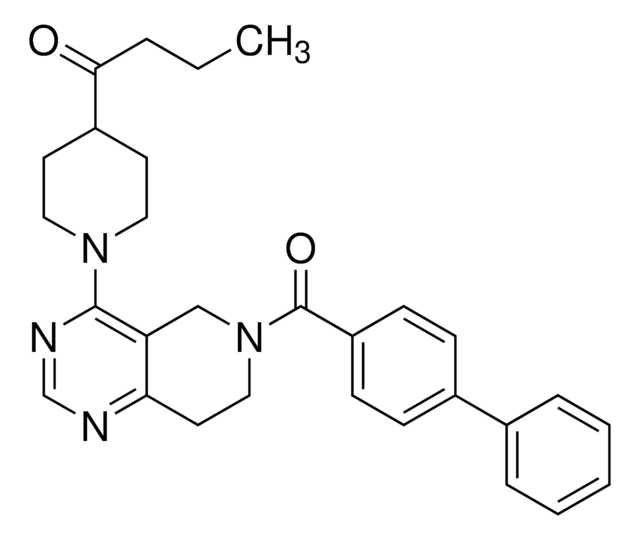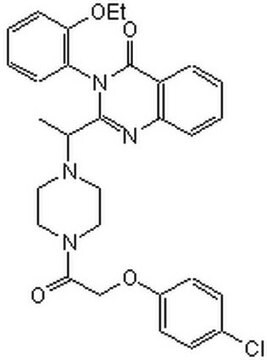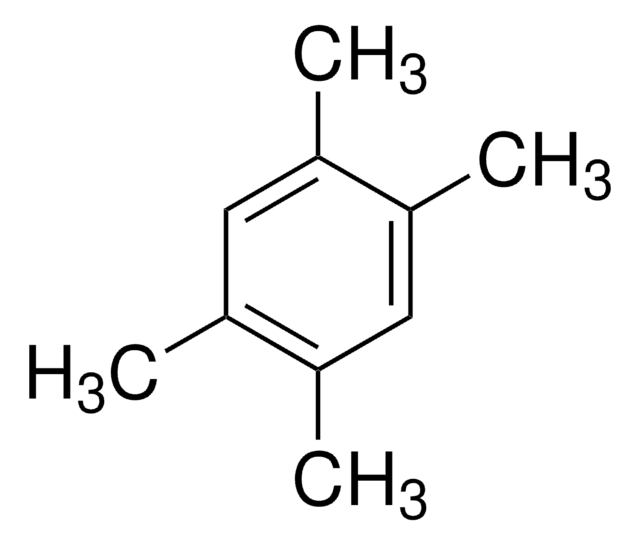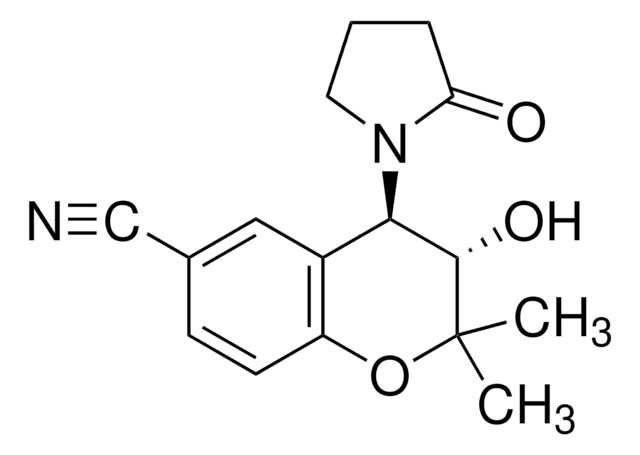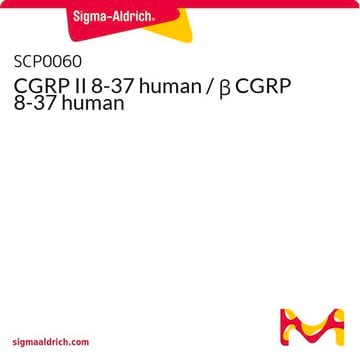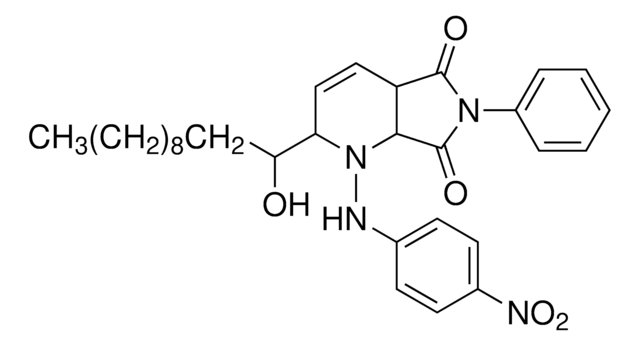SML3971
A1899
≥97% (HPLC)
Synonym(s):
A 1899, A-1899, N-[(2,4-Difluorophenyl)methyl]-2′-[[[2-(4-methoxyphenyl)acetyl]amino]methyl][1,1′-biphenyl]-2-carboxamide, S 20951, S-20951, S20951
Sign Into View Organizational & Contract Pricing
All Photos(2)
About This Item
Empirical Formula (Hill Notation):
C30H26F2N2O3
CAS Number:
Molecular Weight:
500.54
MDL number:
UNSPSC Code:
12352200
NACRES:
NA.77
Recommended Products
Quality Level
Assay
≥97% (HPLC)
form
powder
color
white to beige
solubility
DMSO: 2 mg/mL, clear
storage temp.
-10 to -25°C
Biochem/physiol Actions
Potent and selective TASK-1 potassium channel blocker that induces lasting respiratory alkalosis and stimulates breathing in anesthetized rats.
A1899 is a highly potent and selective non-voltage-dependent two-pore domain potassium channel K 2P 3.1 blocker (TASK-1, KCNK3, IC50 = 7 nM in CHO cells) with 10-fold selectivity over TASK-3 and much reduced or little potency towards TASK-2/4 (>8 µM in Xenopus oocytes) and other potassium channels. A1899 specifically blocks TASK-1 currents by 74% in Xenopus oocytes at 100 nM via an open-channel block mechanism. A1899 induces lasting respiratory alkalosis and stimulates breathing in anesthetized rats in vivo (5-25 mg/kg, i.v.). Also mitigates the endothelin-1 induced prolonged action potential duration in cardiomyocytes (at 200 nM).
A1899 is a highly potent and selective non-voltage-dependent two-pore domain potassium channel K 2P 3.1 blocker (TASK-1, KCNK3, IC50 = 7 nM in CHO cells) with 10-fold selectivity over TASK-3 and much reduced or little potency towards TASK-2/4 (>8 µM in Xenopus oocytes) and other potassium channels. A1899 specifically blocks TASK-1 currents by 74% in Xenopus oocytes at 100 nM via an open-channel block mechanism. A1899 induces lasting respiratory alkalosis and stimulates breathing in anesthetized rats in vivo (5-25 mg/kg, i.v.). Also mitigates the endothelin-1 induced prolonged action potential duration in cardiomyocytes (at 200 nM).
Storage Class Code
11 - Combustible Solids
WGK
WGK 3
Flash Point(F)
Not applicable
Flash Point(C)
Not applicable
Choose from one of the most recent versions:
Certificates of Analysis (COA)
Lot/Batch Number
Don't see the Right Version?
If you require a particular version, you can look up a specific certificate by the Lot or Batch number.
Already Own This Product?
Find documentation for the products that you have recently purchased in the Document Library.
Identification of the A293 (AVE1231) Binding Site in the Cardiac Two-Pore-Domain Potassium Channel TASK-1: a Common Low Affinity Antiarrhythmic Drug Binding Site.
Cellular Physiology and Biochemistry, 52(5), 1223-1235 (2019)
Peadar B O'Donohoe et al.
Physiological reports, 6(19), e13876-e13876 (2018-10-05)
Sensing of hypoxia and acidosis in arterial chemoreceptors is thought to be mediated through the inhibition of TASK and possibly other (e.g., BKCa ) potassium channels which leads to membrane depolarization, voltage-gated Ca-entry, and neurosecretion. Here, we investigate the effects
A specific two-pore domain potassium channel blocker defines the structure of the TASK-1 open pore.
The Journal of Biological Chemistry, 286(16), 13977-13984 (2011)
Our team of scientists has experience in all areas of research including Life Science, Material Science, Chemical Synthesis, Chromatography, Analytical and many others.
Contact Technical Service
